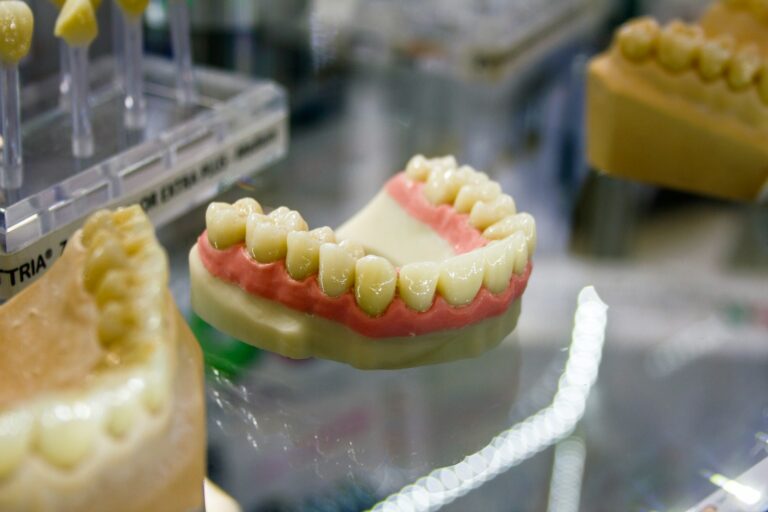
If one is considering enhancing their smile, veneers may be the solution they have been seeking. These thin shells can significantly transform teeth, providing a swift remedy for issues such as discolouration and misalignment.
This article delves into what veneers are, the reasons individuals opt for them, and the different types available. It also examines the associated benefits and risks, as well as 5 important questions to ask your dentist before you get veneers.
Prepare to learn everything necessary to achieve the perfect smile!
What Are Veneers?

Veneers are ultra-thin shells made from porcelain or composite materials, specifically designed to cover the front surface of teeth. They are primarily used in cosmetic dentistry.
This dental procedure aims to enhance the appearance of your smile by improving its colour, shape, size, and alignment, resulting in a natural-looking effect that can significantly boost your confidence.
It is important to understand that veneers also play a role in oral health, as they can help protect the underlying tooth enamel from damage and wear.
Consulting with a dental professional is essential to explore your options and develop a personalised smile design that aligns with your aesthetic goals.
Why Do People Get Veneers?
Individuals often choose veneers for several reasons, with the primary motivation being the desire for a remarkable smile makeover.
Many seek veneers to resolve various issues, including discolouration, gaps, chips, or misalignment in their teeth, all of which contribute to a significant transformation of their smiles.
This cosmetic dental option has gained popularity due to its ability to dramatically enhance one’s appearance, which can, in turn, lead to increased self-esteem and confidence.
Patients also value the efficiency of the dental procedures involved, frequently experiencing a quicker turnaround compared to other treatment options.
What Are the Different Types of Veneers?
There are various types of veneers available, each providing unique benefits based on individual aesthetic needs and preferences.
The two most common options are porcelain veneers, which are renowned for their natural appearance and durability, and composite veneers, often more budget-friendly and typically applied in a single dental appointment.
It’s important to understand the different veneer options if you’re thinking about enhancing your smile, as each type comes with its own set of aesthetic improvements and care requirements.
Consulting with experienced dental professionals can help you determine the best choice, taking into account your oral health and the results you wish to achieve.
1. Porcelain Veneers
Porcelain veneers have become a popular option in cosmetic dentistry, known for their durability and natural appearance, making them an excellent choice for tooth restoration. These veneers are made from high-quality ceramic material that closely resembles natural tooth enamel, enhancing the overall aesthetics of a smile.
Patients often find that with proper care, porcelain veneers can last for many years, making them a worthwhile long-term investment in their dental health. The process of applying porcelain veneers typically requires minimal tooth preparation, allowing for an effective and efficient treatment experience.
The application process begins with a comprehensive consultation during which dental professionals evaluate the patient’s needs and goals. This is followed by a careful fitting procedure, where the veneers are custom-made to ensure they match perfectly with the existing teeth.
Once applied, these veneers not only conceal imperfections but also provide an additional layer of protection against future damage and decay. To maintain their beautiful appearance, it is crucial for individuals to follow proper dental hygiene practices, such as regular brushing, flossing, and routine dental check-ups.
This commitment to care will help to extend the lifespan of porcelain veneers while ensuring that they continue to enhance the brightness and beauty of one’s smile.
2. Composite Veneers
Composite veneers serve as an alternative to porcelain veneers, employing dental bonding materials to create a natural-looking smile, often at a more affordable price point. One of the key advantages of these veneers is that they can be applied in a single dental appointment, which makes them an attractive option for patients seeking immediate results.
While composite veneers may not last as long as their porcelain counterparts, they still offer considerable cosmetic enhancements and maintain a high level of patient satisfaction. With regular maintenance and proper oral hygiene, their durability and appearance can be improved over time.
Patients who choose composite veneers often appreciate their effectiveness in addressing various dental imperfections, such as discolouration, chips, and spacing issues, all without the need for extensive procedures. Moreover, these veneers require less enamel removal compared to porcelain options, fostering a more conservative approach that many patients find appealing.
It is essential to consider that although the upfront cost of composite veneers is generally lower, they may necessitate more frequent replacements and repairs due to wear and tear. This could lead to increased long-term expenses.
When evaluating patient experiences, many individuals report satisfaction with both types of veneers; however, porcelain veneers tend to outperform in durability and stain resistance. Ultimately, the decision may depend on individual priorities regarding aesthetics and lifestyle.
3. Lumineers
Lumineers represent a unique type of veneer that is distinguished by its ultra-thin design. This feature allows for easy application while preserving a greater amount of natural tooth enamel compared to traditional veneers.
Many patients prefer these innovative options due to their minimal preparation requirements, which make the dental procedure less invasive and more comfortable overall. Lumineers can effectively enhance a smile and provide a durable solution for common cosmetic concerns, such as discolouration and slight misalignments. The application process utilises advanced dental technology to ensure a perfect fit and a natural appearance.
This modern approach includes digital imaging and 3D modelling, which help in accurately crafting each Lumineer to match the unique contours of an individual’s teeth. A significant advantage of Lumineers is that they typically do not require any reduction of the tooth structure, thereby preserving essential enamel that is often compromised with traditional porcelain veneers.
When compared to these alternatives, Lumineers stand out by offering a reversible solution, making them an attractive choice for individuals who may be hesitant to make more permanent changes to their smile.
Additionally, their resistance to staining and ease of application further reinforce their status as a preferred option among both dentists and patients seeking cosmetic enhancements.
What Are the Benefits of Veneers?

The advantages of veneers go beyond merely improving appearances; they play a significant role in enhancing an individual’s confidence in their smile while also supporting overall dental health.
These cosmetic enhancements can effectively address various concerns, including tooth discolouration, gaps, and misalignment, which can ultimately boost self-esteem and satisfaction with one’s appearance.
Additionally, the veneer procedure provides added protection to the underlying tooth structure, helping to maintain oral health by reducing wear on tooth enamel.
Recognising these benefits allows individuals to align their aesthetic aspirations with their dental care requirements.
What Are the Risks of Veneers?
Veneers provide a range of benefits, but it is important for potential patients to be aware of the associated risks before proceeding with any dental procedure.
Common risks include:
- Increased tooth sensitivity after placement
- The possibility of chipping or cracking
- Discolouration over time, which can depend on the materials used and individual oral hygiene practices
By understanding these risks, patients can make informed decisions about their journey to enhance their smiles. Consulting with a qualified dentist can offer valuable insights into how to minimise these concerns effectively.
1. Tooth Sensitivity
Tooth sensitivity is a common concern for many patients following the placement of veneers. This sensitivity often stems from the thinning of enamel or the bonding process itself. Patients may experience discomfort when consuming hot or cold foods and beverages, which leads them to seek guidance on managing their oral health after the procedure.
Understanding the underlying reasons for sensitivity can help patients prepare for their dental appointments and follow the appropriate dental care protocols to alleviate discomfort.
Several factors can contribute to this issue, including:
- the type of veneers used
- the individual tooth structure
- any pre-existing dental conditions
It is not uncommon for patients to report sharp pain during routine activities such as eating, drinking, or even breathing in cold air.
Dental professionals frequently recommend the use of desensitising toothpaste and suggest switching to a soft-bristled toothbrush to minimise irritation. Regular dental check-ups are essential as they allow for the early identification of any complications or necessary adjustments, ensuring that sensitive teeth remain healthy.
Many individuals have shared their success stories about managing sensitivity by adopting these strategies, while also emphasising the importance of maintaining open communication with their dentists to receive tailored advice.
2. Chipping or Cracking
Chipping or cracking of veneers can occur for a variety of reasons, including improper care or excessive force applied to the teeth, which can be quite concerning for those who have invested in their smiles. While dental veneers are designed to be durable, they are not indestructible, and it is important to understand the risks involved for effective maintenance.
Regular dental visits and following your dentist’s recommendations for care can help prevent these issues and ensure the longevity of your veneers.
Factors such as teeth grinding, biting down on hard foods, or using teeth as tools can significantly increase the risk of damage. Additionally, exposure to acidic foods and beverages can weaken the adhesive bond, potentially leading to detachment or degradation over time.
To mitigate these risks, dental professionals often recommend that individuals who grind their teeth wear a custom night guard. Practising good oral hygiene is also essential, which includes gentle brushing with non-abrasive toothpaste.
Regular check-ups will allow for the early detection of any potential problems, giving individuals the best chance to maintain their beautiful smiles for years to come.
3. Discoloration
Discolouration is a potential concern for individuals with veneers, especially if proper oral hygiene and maintenance are not consistently practised over time. Although veneers are designed to resist stains more effectively than natural teeth, exposure to certain foods, beverages, and lifestyle habits can still result in changes to their appearance.
It is essential to educate patients on proper care techniques to maintain the aesthetic benefits of veneers and ensure a lasting, beautiful smile.
To keep their veneers in optimal condition, individuals should prioritise a consistent oral hygiene routine, which includes:
- Brushing at least twice a day with a non-abrasive toothpaste
- Flossing daily
Additionally, avoiding highly pigmented foods and drinks, such as red wine, coffee, and berries, can significantly decrease the risk of staining. Regular dental check-ups are also crucial, as professional cleanings help remove any build-up that could contribute to discolouration.
By staying informed and proactive about maintaining their veneers, patients can enjoy their radiant smiles for many years to come.
5 Questions to Ask Your Dentist Before You Get Veneers

Before deciding on veneers, it is important to engage in a candid discussion with your dentist. This conversation will help you ask the right questions and adequately prepare for the treatment.
A thorough consultation allows you to get a good idea of the procedure, the different types of veneers available, and how they can align with your specific smile goals.
You may want to ask about your suitability for veneers, the results you can expect, and the treatment plan tailored to your unique dental needs. Taking this proactive approach not only fosters patient education but also enhances the overall dental experience.
1. Am I a Good Candidate for Veneers?
Determining whether you are a good candidate for veneers begins with a thorough dental assessment conducted by your dentist. They will evaluate your oral health, aesthetic goals, and any existing dental issues.
Key factors in this assessment include the condition of your tooth enamel, gum health, and overall dental hygiene. A skilled dentist is well-equipped to provide personalised recommendations and outline any necessary steps you may need to take before moving forward with this cosmetic treatment.
Additionally, the presence of existing restorations, such as fillings or crowns, may impact your candidacy, as can habits that could affect the longevity of veneers, such as teeth grinding. It’s essential to have an open discussion about your cosmetic expectations; expressing your desired results will help ensure that you and your dentist are on the same page regarding what is achievable.
Many dentists utilise digital simulations to help visualise potential outcomes, which can simplify the decision-making process. If veneers are not suitable for you, they can suggest alternative treatments, ensuring you feel supported and informed throughout your journey towards achieving a radiant smile.
2. How Many Veneers Do I Need?
The number of veneers an individual may require is contingent upon specific smile design goals and the condition of their teeth, both of which should be assessed during a dental consultation. Some patients may only need a few veneers to correct particular imperfections, while others might prefer a complete set for a uniform appearance.
Collaborating with the dentist to create a treatment plan ensures that aesthetic aspirations are met, while also taking into account vital factors such as bite alignment and overall dental health.
Different smile design options can greatly affect the number of veneers needed. For example, if someone desires a broader smile, they may require veneers on both their upper and lower teeth.
It is important to discuss preferences regarding tooth shape, colour, and size, as these elements play crucial roles in the final outcome. A customised treatment plan tailored to an individual’s unique dental structure will enhance the results.
By addressing the specific needs of each patient, the dentist can help achieve not only a beautiful smile but also improved functionality, ultimately leading to greater satisfaction with the results.
3. What Is the Procedure for Getting Veneers?
The process for obtaining veneers typically involves several dental appointments, starting with a thorough evaluation and followed by tooth preparation and the placement of the veneers. During the initial visit, the dentist will assess your oral health and discuss the aesthetic goals you wish to achieve.
The actual placement procedure involves minimal tooth preparation, ensuring a comfortable experience while utilising advanced dental technology for a precise fit and a natural appearance.
This advanced technology includes digital imaging and 3D modelling, which enables highly accurate designs tailored to the unique contours of your teeth. After the initial preparation, temporary veneers may be placed, allowing you to visualise the final results.
In the next session, the custom-made veneers are carefully bonded to your teeth. This delicate process requires both artistic skill and scientific precision.
The dentist will make any necessary adjustments to ensure perfect alignment and bite, ultimately helping you achieve a beautiful smile that complements your facial features and enhances your confidence.
4. How Long Do Veneers Last?
Veneers are intended to be a long-lasting solution for enhancing smiles. Porcelain veneers generally have a lifespan of 10 to 15 years when cared for properly, while composite veneers may last around 5 to 7 years.
Several factors, such as oral hygiene, regular dental visits, and maintenance practices, play a crucial role in determining how long veneers will last. Setting realistic expectations about the lifespan of veneers can help individuals plan for future dental care and possible replacements.
The material used, the location of the veneer, and personal habits—such as teeth grinding or consuming staining substances—can greatly influence their durability.
To maximise the lifespan of veneers, individuals should maintain a consistent oral care routine that includes regular brushing and flossing, while also being cautious about hard foods that might chip or damage the material.
Additionally, scheduling regular dental check-ups is essential, as these visits allow for the early detection of potential issues and provide professional cleaning to keep the veneers in excellent condition.
By prioritising proactive care and following dental recommendations, individuals can significantly improve the longevity of their veneers.
5. What Is the Cost of Veneers and Do You Offer Payment Plans?
Understanding the cost of veneers is crucial for anyone considering this cosmetic treatment, as prices can vary significantly due to factors such as the type of material used and the complexity of the dental procedures involved.
Many dental clinics offer payment plans or financing options to assist patients in managing their budgets for veneers more effectively. It’s essential to have an open conversation with your dentist about your financial situation and to ask whether dental insurance might cover a portion of the costs associated with veneer placement.
Several factors influence the overall cost, including the dentist’s expertise, the location of the practice, and any necessary preparatory work beforehand. Some patients may find that they require multiple visits, which can further affect the financial considerations.
By discussing all available financial options with their dentist, individuals can better understand what to expect and how to make this cosmetic enhancement more attainable.
Conducting research on potential insurance coverage and familiarising oneself with the details of payment plans can enable patients to make informed choices, ensuring that their aesthetic aspirations align with their financial realities.
Frequently Asked Questions
What are veneers and why should I consider getting them?
Veneers are thin porcelain or composite shells that are custom-made to cover the front surface of your teeth. They can improve the appearance of teeth that are chipped, stained, or misshapen. You may want to consider getting veneers if you want to enhance the look of your smile and boost your confidence.
How do I know if I am a good candidate for veneers?
Your dentist will be able to determine if you are a good candidate for veneers after a thorough examination of your teeth and gums. Generally, those with healthy teeth and gums, and who have minor cosmetic imperfections are good candidates. However, if you have severe dental issues, your dentist may recommend other treatment options.
What are the different types of veneers available?
There are two main types of veneers: porcelain and composite. Porcelain veneers are more durable and stain-resistant, but they are also more expensive. Composite veneers are less expensive, but they may not last as long and may be more prone to staining. Your dentist can help you decide which type of veneer is best for you.
How long do veneers last?
Veneers can last anywhere from 7-15 years or longer with proper care. Porcelain veneers tend to last longer than composite veneers, but their lifespan also depends on how well you take care of them. Regular dental check-ups and good oral hygiene habits can help extend the lifespan of your veneers.
What is the process for getting veneers?
The process for getting veneers typically involves multiple visits to your dentist. During the first visit, your dentist will prepare your teeth by removing a small amount of enamel and will take impressions of your teeth to create the custom veneers. In the following visit, the veneers will be placed and adjusted for proper fit and comfort. Your dentist may also schedule a follow-up visit to ensure your veneers are functioning properly.
What are the potential risks or complications of getting veneers?
Some potential risks or complications of getting veneers include tooth sensitivity, irritation or inflammation of the gums, and the possibility of veneers becoming loose or damaged. However, these risks are minimal and can be avoided with proper care and maintenance of your veneers. Your dentist will also provide you with specific aftercare instructions to reduce the risk of complications.






